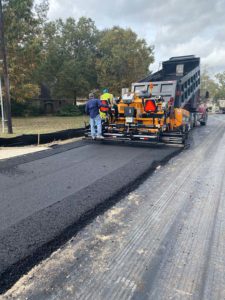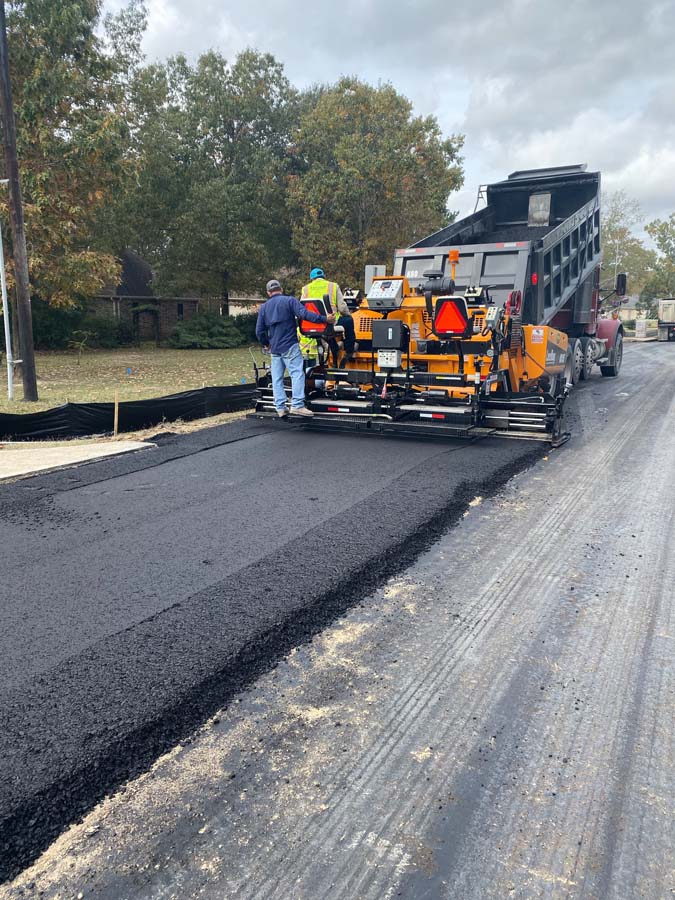
On an Asphalt Paving Project, What Do You Mean by Timing?
Your Houston paving contractor orders hot mix asphalt from a local plant, which then delivers the material. Upon arrival, the temperature of the mix is usually between 280 and 300 degrees Fahrenheit. The paving company must spread the asphalt, rake it, and compact while it is still hot. If the material cools below 185 degrees or so, it will not be possible for your asphalt company to compact it properly. Without proper compaction, the pavement will be unsightly, rough, and short-lived. What all this means is that your contractor’s workers have a very brief window in which to complete all necessary tasks to ensure proper compaction. Depending on the size of the job and the temperature, this window could be as brief as 10 or 15 minutes.
How Does the Temperature Affect the Installation of Asphalt Paving?
When installing asphalt paving Houston contractors check the air or ambient temperature as well as the ground temperature. Although you might think that the ground temperature should be extremely close to the air temperature, there can actually be a difference of more than 10 degrees. For example, a cold night could leave the ground substantially cooler than the air temperature, but the reverse can also happen. If you have ever poured a hot beverage over ice, you know that the ice will melt, but the process will cool the beverage. This is the basic principle that applies when a paving company applies hot asphalt to a cold surface. The asphalt will lose its heat much more rapidly, and this could leave the contractor’s crew with insufficient time for compaction.
Is Temperature Less Critical for an Asphalt Overlay?
The temperature matters just as much for an asphalt overlay, and it can be even more important in some cases. Compared to a street or high-volume parking lot pavement, an asphalt overlay can consist of thinner layers that are incapable of retaining heat as long as a thicker lift. There are other factors that must be considered for all types of projects involving asphalt paving Houston properties, so only your contractor can tell you whether you should proceed with an asphalt repair or an asphalt overlay.
What Temperature Does an Asphalt Contractor Want for a Paving Project?
As a rule of thumb, if it is too cold to apply asphalt sealcoating, it is too cold to pave. Asphalt sealcoating and paving typically require that both the ground and air temperatures are a minimum of 50 degrees and rising. However, other factors can affect the contractor’s decision. For example, if it is extremely windy or heavily overcast, 50 degrees might still be too cold to pave.
Contact the Paving Contractor Houston TX Property Owners and Managers Trust
Marathon Solutions is a full-service paving company with an exceptional reputation for exemplary craftsmanship and extraordinary customer service. Our paving services include asphalt resurfacing and paving, asphalt sealcoating, parking lot striping, asphalt repair, concrete installation, thermoplastic markings, asphalt crack repair, bollard installation, concrete repair, parking lot signage, marking removal, and asphalt milling. We would welcome the opportunity to surpass your expectations, so fill out our online form to request a free quote. If you prefer, you can give us a call at 800-879-1147.


